This article was co-authored by Megan Morgan, PhD. Megan Morgan is a Graduate Program Academic Advisor in the School of Public & International Affairs at the University of Georgia. She earned her PhD in English from the University of Georgia in 2015.
There are 21 references cited in this article, which can be found at the bottom of the page.
wikiHow marks an article as reader-approved once it receives enough positive feedback. In this case, 88% of readers who voted found the article helpful, earning it our reader-approved status.
This article has been viewed 165,818 times.
Yale University, a private university located in New Haven, Connecticut, was founded in 1701 and is an elite Ivy League school. Its total enrollment is generally less than 12,000 students. Yale receives many more applicants than the school is able to accept each year; it accepts just 6.3% of these applicants.[1] This means the admissions process is very selective. You don't only need to make honor roll and show academic excellence, but you need to find something that makes you stand out from the crowd in order to be accepted.
Steps
Building a Strong Academic Portfolio
-
1Take AP or college prep courses if they are available. Challenge yourself with difficult college prep curriculum in high school. Because Yale is an Ivy League school, admissions officers look for students who have proven they can survive a heavy course load. Achieving high grades in easy courses will likely not be enough to get you into Yale, so load up on advanced placement and college prep courses to prove you stand out among your peers.[2]
- If your high school offers unusual or unique courses not found in most high schools, take them. For example, if your high school offers an exotic language such as Japanese or Mandarin in addition to Spanish, French and German, choose Japanese or Mandarin. This will help you stand out.
- Don’t take “easy” or “blow off” electives. Getting a 4.0 in easy elective classes will not help you gain admission to Yale. So ditch the dodgeball class and take something a little more challenging.[3]
-
2Get good grades. The first thing Yale will look at is your academic performance throughout your high school tenure. Maintaining a consistently high grade point average throughout high school is a critical step in applying for Yale.[4]
- As an elite Ivy League school, Yale will examine your grade history from all four years of high school whereas less exclusive schools tend to weigh your performance in your junior and senior year more heavily.[5]
- However, you should make sure that your senior course load reflects a rigorous program of study. Do not indulge in "senioritis."[6]
Advertisement -
3Enroll in SAT or ACT prep courses. There are a number of programs and courses designed to help you prepare for the SAT and ACT. These courses can help you devise methods for studying and taking the exams that will help you achieve the highest score you possibly can.[7]
- These courses or programs generally provide techniques designed to help you maximize your score on the ACT or SAT, like how to increase the speed with which you work through individual questions or how to eliminate clearly wrong choices when you don’t know the answer.
- Community centers and public schools sometimes offer these classes for free or at a reduced rate, so check in your area to see what options are available to you.
- SAT Subject Tests are recommended but not required for admissions to Yale. However, these tests are a great way to showcase your knowledge in a specific area and can help distinguish you from the rest of the pack.[8]
-
4Schedule your exam dates carefully. Be sure to pay close attention to the dates when you can take the ACT or SAT in your area and compare those dates to Yale's yearly application deadlines. This will help you plan out a schedule that maximizes your chances of scoring highly on a standardized test before you have to apply to Yale.
- The application deadline for Single-Choice Early Action applications -- where you agree to accept an offer of admission if it is made -- is November 1. The regular application deadline is January 1. If you are applying for regular admission, Yale recommends you take the SAT or ACT no later than December.[9]
-
5Consider taking the SAT or ACT multiple times. If you are worried about your score, consider taking the SAT or ACT more than once. Your score on these exams is a major component of your application package.[10] However, Yale does suggest that you not retake the test if your score is already in the ballpark, since your time will be better spent strengthening other elements of your application.[11]
- Yale does not have standardized test score cutoffs. However, the most recently enrolled freshman class had SAT scores ranging between 2130-2400 and ACT scores ranging between 32-36.[12]
- Yale does not participate in “Score Choice” reporting on the SAT and ACT general exams. This means that you must submit all of your SAT and ACT general exams scores to Yale.[13]
- On the SAT subject test, Yale does allow “Score Choice” reporting, meaning you can choose which scores you want to submit to the university on the SAT subjects test.[14]
- While you can take these tests multiple times, there is little evidence to support the idea that your score will rise drastically after the second or third time you take the exams. Save yourself the time, money and headache by focusing on exam preparation in the beginning rather than trying to maximize the number of times you take the test.[15]
Engaging in Extracurricular Activities
-
1Join an athletic team at your school. The Ivy League schools do not give out athletic scholarships to students. Still, engaging in athletics will help you to show Yale that you are more than just a bookworm. Playing high school sports while maintaining high grades demonstrates that you are a well-rounded individual who can balance multiple responsibilities.[16]
- Also, if you excel in a sport in which Yale participates and your high school grades are above average, it is possible that Yale will “bend” some of the more stringent academic standards for admission to get desirable student-athletes to attend the school.
- While Yale is not known for its athletics program, the university has had some success in men's diving and swimming, golf, hockey and women's fencing.
-
2Engage in student politics at your school. Getting involved in student government in your high school is a great way to show Yale that you are engaged in your academic environment and are ready to take on leadership roles within that environment. So run for class president, vice-president or treasurer.[17]
-
3Find a club or group at your school. While joining clubs and group activities in school are great extracurricular activities on a college application, nothing is more impressive than a young student taking the initiative to found a group or spearhead a student project. Identify areas where your school is lacking extracurricular activities and lobby your school’s administration to allow you to begin a new group.[18]
- When taking this step, be sure you identify other students that will participate and a faculty member who can oversee the group. This will make “pitching” the idea to your school’s administration much easier.[19]
-
4Engage in activities that help your community. Get involved in community service, charity, and public outreach programs. Yale is looking for intelligent individuals who will use their intelligence and ambition to improve their community and those around them. Helping to improve your community during high school will demonstrate that you are exactly the type of outward-thinking person Yale wants at their school.[20]
-
5Build a strong record of employment. Working a part-time job during your high school tenure will demonstrate your work ethic and personal drive to the admissions board at Yale. Working at a local restaurant, carwash or retail store will prove that you can juggle multiple responsibilities while excelling in many areas.[21]
- Just make sure your job does not impact your grades and does not cut into much needed study time. Also, don’t get fired, as being terminated from a position of employment will not improve your chances of admission.
Completing the Application Process
-
1Visit Yale’s admissions website. Prior to applying, carefully and closely read over Yale’s admissions guidelines and application requirements. You will want to know what you need before you begin to put the application together.[22]
-
2Identify your status to the school. Be sure that you mention anyone in your family who has attended Yale in the past. It is well known that Yale gives preference to “legacy” students; in the past, they have admitted that about 20-25% of legacy applicants are admitted, compared to the around 6-7% of overall applicants.[23]
- Also, inform the school if you are a racial, ethnic, religious minority or a first generation college student somewhere in your application package. Yale has diversity quotas that they try to achieve and may give preference to those who have broken the mold to become the first person in their family to attend a four year university.[24]
-
3Draft stellar essays. Test scores, high school grade point averages and letters of recommendation will reflect what others think of you and your performance to the Yale admissions office. The application essay is your chance to represent yourself to the university. Personal essays are a major component of Yale’s admissions package and are often the element of an individual’s application that will set them apart.[25] A strong application essay should address the following questions:
- Who are you?[26]
- What experiences have shaped your life and your outlook to date?[27]
- What have you achieved during your time in high school?[28]
- What do you hope to achieve in the future?[29]
- How can attending Yale help you achieve future goals?[30]
- What can you bring to Yale to enhance, improve or benefit the student community?[31]
- Remember, all strong essays contain a clear and creative introduction that will “hook” the reader, a well-organized body that provides concrete examples as reinforcement for the claims in your introduction, and a poignant and meaningful conclusion that ties the rest of your essay together concisely.[32] [33]
- Always proofread your essay, looking for grammatical, syntactical, and typographical errors. Also, have someone else, such as a parent or respected teacher, read your essay and provide feedback before submitting. A fresh pair of eyes can do wonders for improving the clarity of your writing.[34]
- The questions that are to be addressed in Yale’s two application essays change from year to year, so be sure to read and consider the questions they are asking you carefully before attempting to draft your application essays. You can’t fit your life story into brief essays and Yale knows this, so don’t try to squeeze everything into your essays. Stay focused on a particular theme and treat that theme comprehensively.[35]
-
4Stay within the word count. The Common Application Essay must be between 250-650 words, and the Yale Writing Supplement essay must be 500 words or less.[36] You will not be able to submit your application if your essays exceed the word count.
-
5Complete the Common Application and Yale Supplement. You can fill out both online by visiting the Common Application website. Pay the current application fee with a credit card or electronic check.
- You can also download and mail these forms to Yale, but an overwhelming majority of applicants submit them online. The mailing address for Yale is: Office of Undergraduate Admissions, Yale University, PO Box 208235, New Haven, Connecticut, 06520-8234
- Include a check or money order payable to Yale University.
-
6Acquire letters of recommendation. Ask two of your high school teachers to write a personalized letter of recommendation for you. Teachers can submit the letters online using a link you provide them from the Common Application website.[37] Yale strongly recommends that you ask your 11th and 12th grade teachers for recommendations, since those teachers have taught you most recently and in more rigorous courses.[38]
- You should have a resume, C.V., or list of accomplishments prepared for your teachers so that they can make specific references to things you've done or accomplished in the letter of recommendation.
- Yale is looking for recommendations that highlight your performance in class, as well as your energy, motivation, relationship with your classmates, intellectual curiosity and impact on your classroom environment.[39]
- These recommendations are confidential and you, as the student, should not have access to them. As such, be sure to select two teachers who know you well, think highly of your performance in the classroom and can outline your particular achievements. If you can, it is a good idea to ask for recommendations from teachers of different subjects.[40]
- If you have significant accomplishments in another field, such as music or research, you can solicit an additional letter of recommendation from a person who is very familiar with your accomplishments and can speak about them in detail. However, Yale recommends that you only do this if it will substantially add to your application. It should be labeled as a "Supplementary" letter of recommendation.[41]
-
7Seek assistance from your guidance counselor. Ask your high school guidance counselor to submit a letter of recommendation on your behalf and your official high school transcript. The recommendation should help Yale understand the difficulty of your classes in high school, as well as general information about your background, including any leadership roles you have assumed during your years in high school.[42]
-
8Submit your SAT or ACT scores. Submit these scores through the Common Application website. Visit the Standardized Testing page on the Yale website to determine if the program you are applying for requires any other tests.[43]
- You can also submit your scores by indicating that you want your scores to be sent to Yale. Do this by entering Yale’s school code in the correct section of the ACT or SAT exam. For the ACT, Yale’s school code is “0618”. For the SAT, Yale’s code is “3987”.[44]
- Looking at Yale’s standardized testing website can be useful before you take these exams as well. The website outlines how Yale views your performance on these tests and identifies the general criteria for performance on these tests.[45]
-
9Submit a mid-year report. Ask your high school guidance counselor to submit a mid-year report though the Common Application website as soon as your first semester senior grades are available. Yale wants to ensure that applicants are maintain a high level of academic success throughout their senior year.[46]
-
10Monitor your application. Wait up to 3 weeks after you submitted your application for an email from Yale. This email will have instructions for setting up your “Eli” account. The email will be sent to the address you included on your application. You can use your Eli account to track which documents Yale has received and will allow you to check on the status of your application.[47]
- If you applied for Single-Choice Early Action admission, you will receive notification in mid-December. If you have applied for regular admission, you will be notified by April 1.[48]
- You may be offered an admissions interview. If you are offered one, you should accept. However, not being offered an interview does not mean you will not be admitted.[49]
Community Q&A
-
QuestionDo Ivy League schools accept people from other countries?
 Community AnswerOf course! Yale has this organization called Global Scholars that helps students like you. I advise you look at the Yale website to find out more information.
Community AnswerOf course! Yale has this organization called Global Scholars that helps students like you. I advise you look at the Yale website to find out more information. -
QuestionI'm ten years old and this is my goal. Do you think I can do it?
 Community AnswerYes. Now's the best time to start on preparing. Make sure you learn good study habits (and ask for help if you need it), and push yourself to be the best you can be in academics, extracurricular activities, and volunteer work. Don't stress yourself, but it's totally possible.
Community AnswerYes. Now's the best time to start on preparing. Make sure you learn good study habits (and ask for help if you need it), and push yourself to be the best you can be in academics, extracurricular activities, and volunteer work. Don't stress yourself, but it's totally possible. -
QuestionDoes Yale look at your middle school grades?
 Community AnswerNo! However, they do look at your grades from all four years of high school, junior and senior year being the most important.
Community AnswerNo! However, they do look at your grades from all four years of high school, junior and senior year being the most important.
ReIated wikiHows
- How to Choose a Topic for a Yale Law School Admissions Essay
- How to Get Into an Ivy League School
- How to Get Into Harvard University
References
- ↑ http://colleges.usnews.rankingsandreviews.com/best-colleges/rankings/lowest-acceptance-rate
- ↑ http://admissions.yale.edu/advice-selecting-high-school-courses
- ↑ http://admissions.yale.edu/what-yale-looks-for
- ↑ http://admissions.yale.edu/what-yale-looks-for
- ↑ http://admissions.yale.edu/what-yale-looks-for
- ↑ http://admissions.yale.edu/advice-selecting-high-school-courses
- ↑ http://www.usnews.com/education/blogs/college-admissions-playbook/2013/07/29/how-to-select-the-right-sat-act-prep-course
- ↑ http://admissions.yale.edu/standardized-testing
- ↑ http://admissions.yale.edu/application-deadlines
- ↑ https://sat.collegeboard.org/register/sat-score-choice
- ↑ http://admissions.yale.edu/advice-putting-together-your-application#academic
- ↑ http://admissions.yale.edu/what-yale-looks-for
- ↑ http://admissions.yale.edu/standardized-testing
- ↑ http://admissions.yale.edu/standardized-testing
- ↑ https://sat.collegeboard.org/register/sat-score-choice
- ↑ http://admissions.yale.edu/advice-putting-together-your-application#extracurriculars
- ↑ http://admissions.yale.edu/advice-putting-together-your-application#extracurriculars
- ↑ http://admissions.yale.edu/advice-putting-together-your-application#extracurriculars
- ↑ http://admissions.yale.edu/advice-putting-together-your-application#extracurriculars
- ↑ http://admissions.yale.edu/advice-putting-together-your-application#extracurriculars
- ↑ http://admissions.yale.edu/advice-putting-together-your-application#extracurriculars
- ↑ http://admissions.yale.edu/what-yale-looks-for
- ↑ http://www.nytimes.com/2011/11/06/education/edlife/being-a-legacy-has-its-burden.html?_r=2&ref=edlife
- ↑ http://admissions.yale.edu/advice-first-generation-college-applicants
- ↑ http://admissions.yale.edu/advice-putting-together-your-application#essay
- ↑ http://admissions.yale.edu/advice-putting-together-your-application#essay
- ↑ http://admissions.yale.edu/advice-putting-together-your-application#essay
- ↑ http://admissions.yale.edu/advice-putting-together-your-application#essay
- ↑ http://admissions.yale.edu/advice-putting-together-your-application#essay
- ↑ http://admissions.yale.edu/advice-putting-together-your-application#essay
- ↑ http://admissions.yale.edu/advice-putting-together-your-application#essay
- ↑ http://admissions.yale.edu/advice-putting-together-your-application#essay
- ↑ http://admissions.yale.edu/faq/applying-yale-college#t179n1368
- ↑ http://admissions.yale.edu/advice-putting-together-your-application#essay
- ↑ http://admissions.yale.edu/advice-putting-together-your-application#essay
- ↑ http://admissions.yale.edu/faq/applying-yale-college#t179n1366
- ↑ http://admissions.yale.edu/advice-putting-together-your-application#recommendations
- ↑ http://admissions.yale.edu/faq/applying-yale-college#t179n1374
- ↑ http://admissions.yale.edu/advice-putting-together-your-application#recommendations
- ↑ http://admissions.yale.edu/faq/applying-yale-college#t179n1374
- ↑ http://admissions.yale.edu/faq/applying-yale-college#t179n1375
- ↑ http://admissions.yale.edu/advice-putting-together-your-application#recommendations
- ↑ http://admissions.yale.edu/standardized-testing
- ↑ http://admissions.yale.edu/standardized-testing
- ↑ http://admissions.yale.edu/standardized-testing
- ↑ http://admissions.yale.edu/advice-putting-together-your-application#academic
- ↑ http://admissions.yale.edu/yale-admissions-status-portal
- ↑ http://admissions.yale.edu/application-deadlines
- ↑ http://admissions.yale.edu/faq/interviews

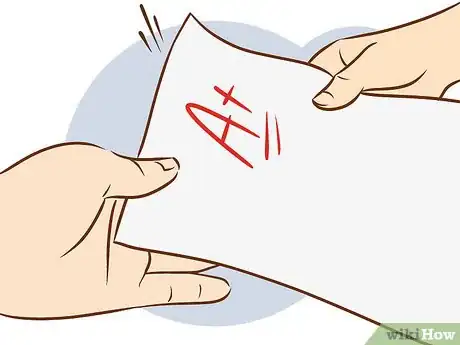

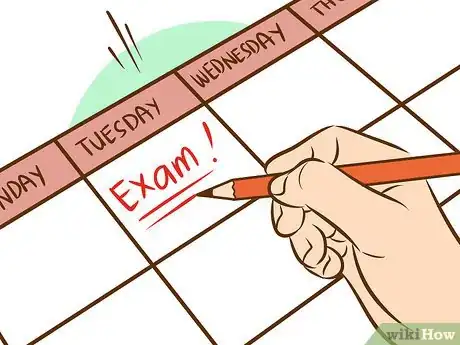
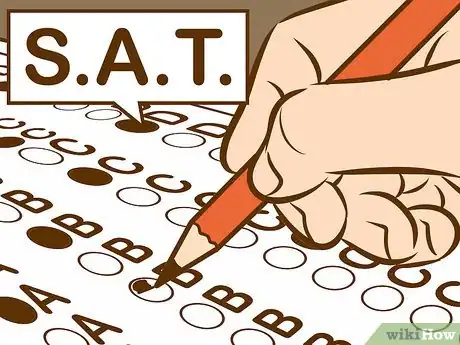












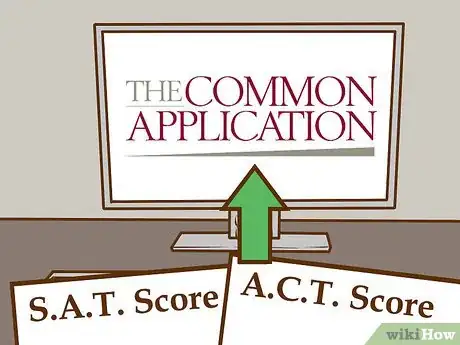
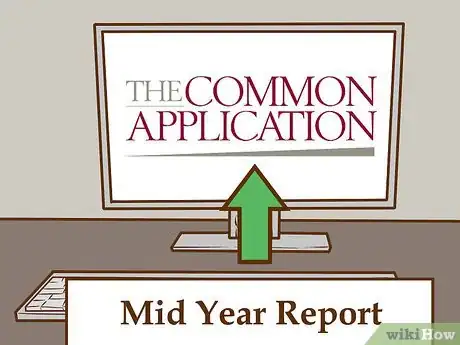




-Step-11.webp)

















-Step-11.webp)


































